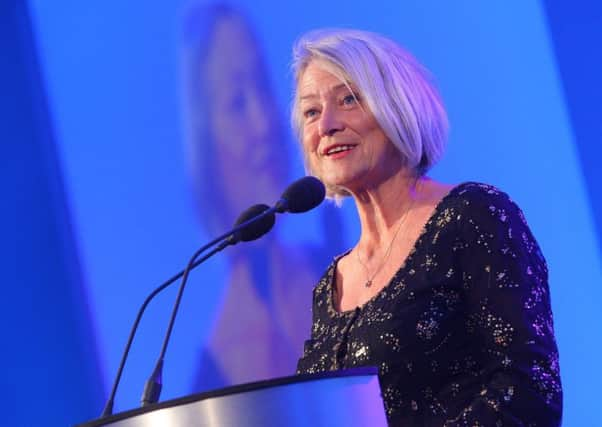Greater efforts required to fund female-led firms
This article contains affiliate links. We may earn a small commission on items purchased through this article, but that does not affect our editorial judgement.


Addressing dinner guests at the recent Ambition & Growth Conference, hosted by business angel group Investing Women, renowned broadcaster Kate Adie praised the confidence, achievements and drive of the assembled businesswomen.
• READ MORE: Scotland’s female entrepreneurs add £268m to economy
Advertisement
Hide AdAdvertisement
Hide AdBut while the event celebrated admirable progress, a new study published today shines a spotlight on that crucial component for any fledgling business –funding – and finds women are lagging far behind their male counterparts on some key measures regarding access.
Think-tank The Entrepreneurs Network (TEN), in partnership with Barclays, will today take the wraps off Untapped Unicorns, a report outlining how Britain can scale up female entrepreneurship, part of the Female Founders Forum project uniting some of the UK’s most successful businesswomen.
Among the findings from the report, which drew on external academic studies, interviews, surveys and new data commissioned by TEN, male entrepreneurs were 86 per cent more likely to be funded by venture capital (VC), and 56 per cent more likely to bag angel investment.
Furthermore, 91 per cent of investment last year was directed into firms without a single female founder.
This was despite 34 per cent of male entrepreneurs having seen a business fold compared with about a quarter of female founders. Women were also found to bring in 20 per cent more revenue with half the amount invested.
Annabel Denham, programmes director at TEN, which was founded in 2012, says: “It is a frustrating reality that a significant proportion of funding – be it at seed or Series C+ level – goes towards male-founded or led businesses.”
The findings are set against a backdrop of a lack of firms scaling up, with Britain languishing near the bottom of the table for the percentage of businesses which have more than ten staff after three years, according to OECD data.
Advertisement
Hide AdAdvertisement
Hide AdBut Denham adds: “This is not just an economic discussion, though we know scale-ups are vital to the UK economy: we want to see smart, savvy businesswomen getting the same opportunities as their male counterparts.”
The report is being launched with a reception to be attended by guests of honour including Emma Sinclair, who
co-founded global software company EnterpriseJungle and, at the age of 29, became the youngest person ever to float a business on the London Stock Exchange.
She says: “As any entrepreneur will tell you, growing a business is never easy. But offering people an investment opportunity in a listed company that has liquidity arguably can make the investment more compelling.”
Sinclair also said she would IPO again, and “would encourage everyone to look into it and consider it as a real option”.
More broadly, the study puts forward various recommendations to help drive change, including encouraging diversity, and says the VC industry “should acknowledge biases within the sphere” and consider altering staff gender balances.
There is also a call for the Department for Business, Energy and Industrial Strategy to give data on growth businesses.
The report adds: “The government should also work with the UK Business Angels Association to provide statistics on returns offered by women-founded businesses at the angel level to encourage and increase in early-stage investing.”
Advertisement
Hide AdAdvertisement
Hide AdOn the subject of angels, the report states that female business founders should pay it forward by backing others. The number of female angels has more than quadrupled in recent years, helped by the rise of alternative finance.
Further data giving cause for celebration by women is new analysis by Founders4Schools, cited by the report, which found that 762 women-led companies with revenues between £1 million and £250m are expanding at a median growth rate of 30 per cent a year, 453 are growing by 20 per cent or more and 281 are growing by at least 50 per cent.
Since 2011, investments into companies with no female directors on the board averaged £2.9m, but this jumps by £500,000 with the addition of a single female board member.
Debbie Wosskow, Female Founders Forum member and co-founder of investment platform AllBright, says: “Female founders are underfunded and yet deliver great returns for investors. I hope that, through the Female Founders Forum and AllBright, we can change the conversation for the future.”
With the report also citing the Women’s Business Council, which showed that the UK economy is missing out on more than 1.2 million new enterprises due to the untapped potential of women, here’s to a faster pace of change – one that ultimately benefits everyone.